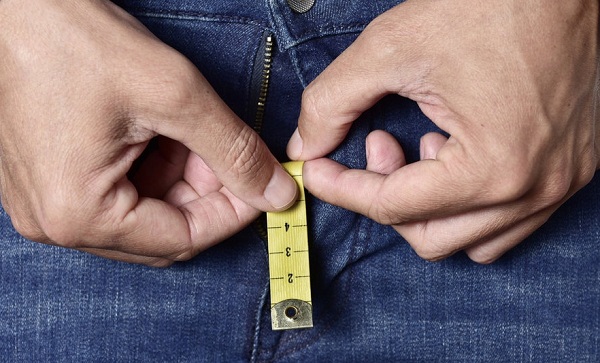Micro Penis correction
Micropenis refers to an abnormally small penis. Micropenis is rare and hormonal or genetic issues are most often the cause. Doctors will usually diagnose and treat the condition at birth.

Micropenis is a medical term for a condition usually discovered in infants through a newborn examination. As the term suggests, micropenis refers to an abnormally small but normally structured penis. The condition is caused by hormonal or genetic abnormalities.
Important things to know about a micropenis:
- Some men may believe they have a micropenis, but that’s likely not the case. It’s very rare.
- A micropenis has a stretched penile length (SPL) of less than 2.5 standard deviation (SD) below the mean for the male’s age.
- In men, an SPL of 3 2/3 inches or less indicates a micropenis. The average SPL for adult males is 5.25 inches.
- Genetics (family history) may play a role in the condition.
- There is no cure for micropenis but hormone therapy may be done for children to stimulate penile growth.
Diagnosis:
Micropenis is diagnosed through a physical examination. Usually found in infancy or young childhood, micropenis is diagnosed through measurement of penile length.
Chances for treatment of micropenis are greater if it is diagnosed in infancy. The doctor can diagnose a true micropenis by fully stretching the penis and measuring with ruler, caliper or modified 10 ml disposable syringe. The number is compared to the normal size range of the boy’s age.
A diagnostic workup follows to determine what kind of treatment should be used to stimulate penis growth.
Questions? We got Answers!
Doctors diagnose micropenis when a person’s penis is 2.5 standard deviations below the average stretched length for their age and level of sexual development.
Research has estimated that the average penis size for an adult is 13.24 centimeters (cm) or 5.21 inches when stretched. For adults, doctors consider micropenis for a stretched penile length of less than 9.3 cm or 3.66 inches.
When a person has micropenis, their internal genitalia and testicles are usually normal.
Micropenis is a rare condition that may affect around 1.5 in 10,000 male newborns, or 0.015 percent of male newborns in the United States, according to estimates taken between 1997 and 2000.
The prevalence statistics of micropenis vary between studies. Micropenis and other birth abnormalities can be related to environmental factors, such as parental exposure to pesticides during pregnancy. As a result, this condition may be more common in specific populations.
Many people worry about penis size and typically think they are smaller than average even when they are not.
If a person suspects they have micropenis, they may wish to see a doctor, who will be able to take accurate measurements and diagnose the condition. A doctor will usually diagnose micropenis at birth, however.
If doctors suspect micropenis, they will measure the stretched length of the baby’s penis and check for other signs of hormonal abnormalities.
If a newborn’s penis is abnormally small, a doctor may perform tests to assess the cause, including:
- Physical exams: Alongside measuring the penis, a doctor may look for other signs, such as unusual fat pads or growths.
- Blood tests: These can help the doctor check the baby’s hormone levels. Doctors may also conduct genetic tests to determine the baby’s biological sex. In rare cases, a baby who seems to have a micropenis may be intersex or have a sex chromosome abnormality.
- Imaging scans: A doctor may use imaging tests, such as a pelvic ultrasound or an MRI scan, to see the genitals and surrounding structures.
Several other conditions can make the penis appear smaller than usual and may be confused with micropenis. Some of these can happen after circumcision.
Alternative diagnoses to micropenis include:
- buried penis, where a fatty pad hides the true size of the penis
- webbed penis, where there is extra skin connecting the scrotum and the penis
- trapped penis, where there is not enough skin surrounding the penis
Most people with micropenis have normal sexual functioning. Micropenis does not affect a person’s ability to urinate, masturbate, or orgasm. Some people may find it more difficult to urinate standing up.
Anxiety about penis size can be a barrier to enjoying sex with a partner. Men may remain unsatisfied with their appearance even with treatment, though research shows that many men have normal sexual identities and functioning. Even so, people may benefit from counseling or sex therapy.
Sexual intercourse is just one of many ways to enjoy sex with a partner. If a person has difficulties with sexual intercourse, this does not have to be a barrier to sexual pleasure for men and their partners.
According to research from 2018, just 18.4 percent of women can orgasm with vaginal penetration alone Focusing on other sexual techniques, such as oral sex, may help a person feel more confident about sexual interactions, which can be a positive for both sexual partners.




